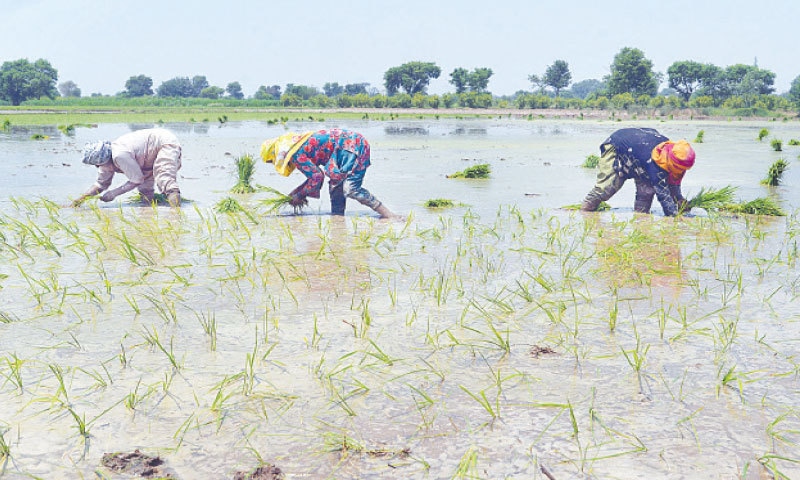ISLAMABAD: Pakistan’s food import bill grew by 53.98 per cent to $7.550 billion year-on-year during the 11 months of the current fiscal year (11MFY21) mainly due to sugar, wheat, palm oil and pulses imports to bridge the shortfall in domestic production of agriculture produce.
The rising food import bill also triggered trade deficit, which will now cause some uneasiness on the external side for the government in upcoming months.
Data compiled by Pakistan Bureau of Statistics (PBS) showed the share of food items in the total import bill reached 15.08pc this year, compared to 12pc last year, making the country dependent on imports to ensure food security.
In the budget 2021-22, the government has proposed several measuring including substantive allocations for increasing per acre yield, reducing wastage and establishing big stores for keeping strategic food items.
The government projection of bumper crops of sugar, wheat and corns will reduce changes of any tangible imports. However, the government will import around 4 million tonnes of wheat as strategic reserves. The government has announced that wheat production will be around 27.23m tonnes this year.
Wheat, sugar, pulses main contributors
As a result of this huge food imports, trade deficit is widening as the overall import bill of the country has been on the rise since November last year, mainly due to an increase in the import bill of eatables.
The total import bill inched up by 22.5pc to $50.039bn in 11MFY21 as against $40.84bn in the corresponding period last year.
The eatable import bill of all products posted growth in value and quantity during the period under review, a clear indication of shortage in domestic production. Within the food group import, the major contribution came from wheat, sugar, edible oil, spices, tea and pulses.
Edible oil import witnessed a substantial increase during the period under review in quantity, value and per value terms.
Import of palm oil recorded a growth of 40.61pc in value in 11MFY21 to $2.397bn from $1.704bn over the corresponding months of last year. In quantity, a growth of 7.42pc was also recorded in import of palm oil during the same period. The palm oil bill increased owing to increase in international price of palm oil.
As a result, the prices of vegetable ghee and cooking oil posted growth during the last few months for domestic users.
The Ministry of Industries failed to correct the prices as production of vegetable ghee and cooking oil also dropped in 10MFY21. However, import of soyabean oil increased by 54.30pc in value and 40.29pc in quantity.
Pakistan imported 3.612 million tonnes of wheat worth $983.326m in nine months of this fiscal year compared to zero imports last year. In April and May, no wheat was imported as the government expects a bumper wheat crop this year.
The bulk import of wheat in the first nine months was made to bridge the gap between supply and demand of staple food in the market.
Similarly, import of sugar stood at 280,772 tonnes in 11MFY21 as against 6,210 tonnes in the corresponding period last year, an increase of 4,421pc.
In May, just 395 tonnes of sugar was imported as against 344 tonnes of sugar over the last year, showing a decline of 14.83pc.
Import of tea posted growth of 13.51pc in 11MFY21 while that of spices increased by 34.58pc. The growth is mainly due to a drop in import of these products under transit trade and controlling of smuggling at border areas.
The import bill of pulses, dried fruits, milk and other food products witnessed a massive growth during the period under review.
Published in Dawn, June 20th, 2021














































